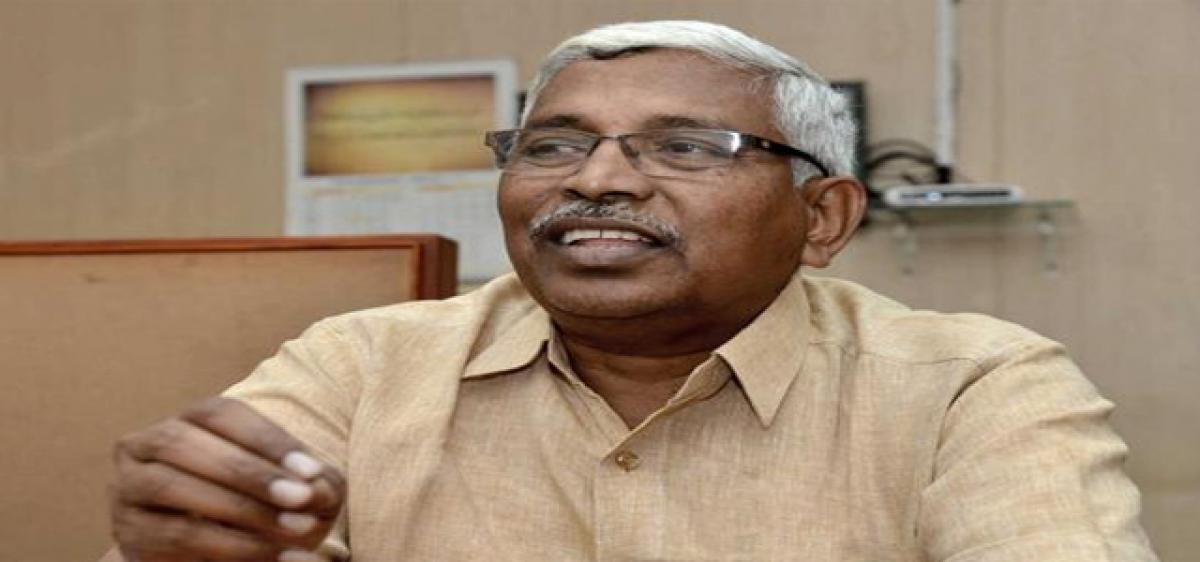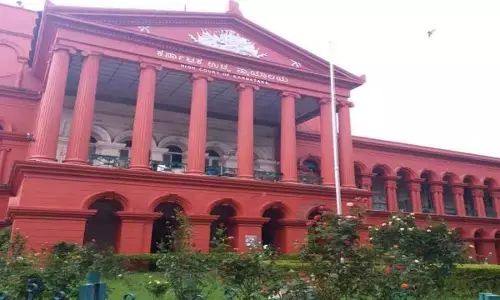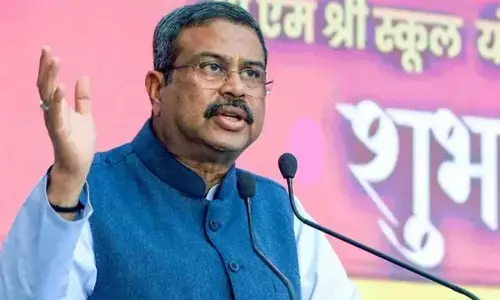Liberalisation failed to help small farmers: TJAC chief

Demanding for a comprehensive agricultural policy to address the crisis being faced by the farmers in Telangana, the Rythu JAC has decided to hold a dharna at the Dharna Chowk near Indira Park on October 23. This new kisan movement is also aimed at sensitising the middle-class about issues being faced by the farmers.
Hyderabad: Demanding for a comprehensive agricultural policy to address the crisis being faced by the farmers in Telangana, the Rythu JAC has decided to hold a dharna at the Dharna Chowk near Indira Park on October 23. This new kisan movement is also aimed at sensitising the middle-class about issues being faced by the farmers.
Speaking to The Hans India, Prof Kodandaram, Chairman of Rythu JAC said, “During liberalisation, the interests of small and marginal farmers were compromised by giving due importance to seed suppliers, food processing companies and privatisation of extension strategies, leaving everything to these companies which were expected to give technical inputs and get quality outputs from the cultivators. But this didn’t happen.
While farmers have been poor, these companies were well connected and started exploiting the farmers. The kind of suicides which started since 1998 is a proof of the failed economic strategy.”
For instance, duplicate seeds in the market have become a major issue which farmers’ and civil society organisations have been raising time and again, he said. A strong and stringent Seeds Act has been a demand for quite some time, Kodandaram said.
Bharatiya Kisan Sangh State president Anji Reddy said that those who were caught making or circulating fake currency were being sent to jail but those who were duping farmers with duplicate seeds were walking away free. “At the maximum, their licence will be suspended and they will sprout with a different name again,” he commented.
Seeds Act of 1966 doesn’t address issue of duplicate seeds and many other issues being raised by several organisations. “Telangana is known as the seed bowl of India. So why is it that we can’t develop seed banks at mandal-level by involving farmers in the process?” he asked.
Speaking on about drought management, Prof Kodandaram said that a revision of drought manual into an Act by the State government has been pending for a long time. He also emphasised on the need for farmers to form themselves into cooperatives so that they could make and supply their own seeds, reducing the unnecessary dependency on seed companies.
He felt time had come to empower women in the field of agriculture by involving women’s self-help groups as procurement agencies at village-level, so that they can be given the task of purchasing the grains, hence ending the interference of middlemen in the markets, which according to him has been taking away more than 60 per cent of produce even before they come into the markets, as research has proved in many parts of Warangal.
“These commissions would act as a liaison between the farmers and the State government,” he said.
Loan Eligibility Cards to tenant farmers and recognising women farmers as farmers has also achieved significance in the recent past. Organisations like Rythu Swarajya Vedika have been persistently pursuing these causes for the past few years.








